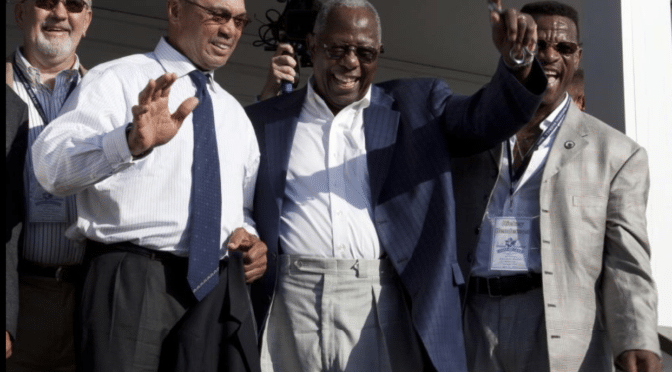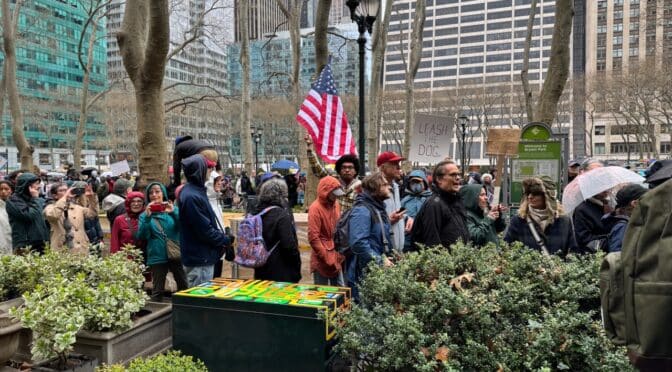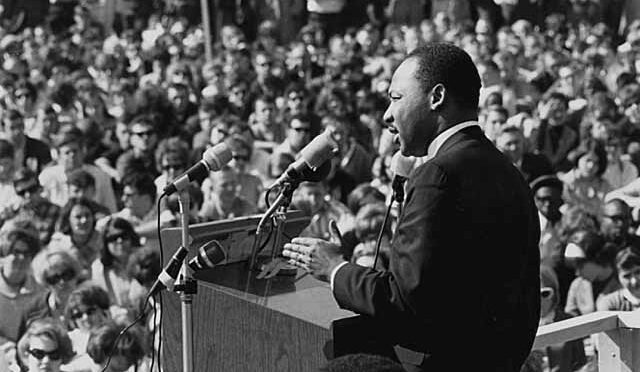On April 6, the anniversary of Hank Aaron’s 715th home run breaking Babe Ruth’s record, I remembered the day Aaron did a small, good deed for democracy, and again defied the race haters. I was with him when he took an elderly Black lady in Atlanta to a polling place to vote.
It was the election of 1980, four years after he slugged his way past Babe Ruth on Major League Baseball’s all-time homer list. I was a TV reporter, and a photographer and I met Aaron at his home and followed him to a housing project. He got out of his car, walked up the short path to the garden level apartment and rang the bell. The woman, I think her name was Mrs. Reeves, wore navy blue with a matching handbag and hat. She shook his hand and smiled shyly.
Hank Aaron led her to the black car and helped her in. He and I walked around to the other side and there I was wedged between Hammerin’ Hank and Mrs. Reeves in the backseat. The photographer sat in the front with the driver.
Aaron asked a few questions and listened politely as Mrs. Reeves talked about how grateful she was for the ride. She told us about her daily routine, and why she couldn’t have gone to vote without the help.
Aaron, born in segregated Mobile, Alabama, understood how important it was for Black people to vote. By the time we met him, he had a history of campaigning and activism. While he was a player on the Milwaukee Braves in 1960, he traveled throughout Wisconsin to support then-Senator John F. Kennedy running for president against Richard Nixon. In 1966, after the Braves moved to Atlanta, he became friendly with Dr. Martin Luther King, Jr. and other civil rights leaders.
Aaron apologized for not being more active in the fight for civil rights, according to one of its heroes, former Atlanta Mayor Andrew Young. He told Ernie Suggs of the Atlanta Constitution that he had responded by telling Aaron that being a great Black baseball player in the deep south was a form of civil rights activism. “We told him to just keep hitting the ball. That was his job,” Young was quoted as saying.
But Aaron’s greatness didn’t ease the racism that made his life a torment at a high point in his career. During the year leading up to his record-breaking homer, he received taunts and death threats from those who didn’t want a black man to break Babe Ruth’s record.
Decades later, he told William Rhoden of the New York Times, “It really made me see for the first time a clear picture of what this country is about. My kids had to live like they were in prison because of kidnap threats, and I had to live like a pig in a slaughter camp. I had to duck. I had to go out the back door of the ballparks. I had to have a police escort with me all the time. I was getting threatening letters every single day. All of these things have put a bad taste in my mouth, and it won’t go away. They carved a piece of my heart away.”
In the car that morning, Hank Aaron had lived that experience. But he didn’t retreat in bitterness. He understood the importance of democracy and did a deed that aimed to empower a Black voter. His effort in that 1980 election fell short of helping the Democratic candidates in Georgia. President Jimmy Carter lost to Ronald Reagan and Senator Herman Talmadge, the scion of a Democratic dynasty, lost his seat to Mack Mattingly.
Yet, thanks to Hank Aaron, one Black woman got a chance to vote, and after we left to report our story, he probably helped others.




